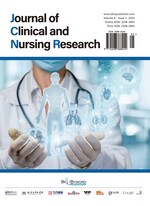Abstract
Objective: To investigate and analyze the current situation of cognition, attitude, behavior, and influencing factors of Type 2 Diabetes Mellitus (T2DM) patients in Neijiang City, and to explore the effectiveness of the application of the education program based on the popularization of science in general medicine. Methods: Seventy cases of T2DM patients in Neijiang City were selected and randomly divided into 35 cases each in the observation group and the control group. The observation group received general medicine science education intervention and the control group received traditional health education. Indicators such as cognitive level, attitude, and behavioral change between the two groups were compared to assess the effect of general medical science education. Results: Before the intervention, there was no difference between the two groups in terms of knowledge, beliefs, and behaviors in general medicine, glycemic control, body mass index (BMI), and satisfaction with health education (P > 0.05). After 3 months of the intervention, there was a highly significant difference in the aforementioned levels between the two groups (P < 0.05). Conclusion: The approach of general medicine popularization had a significant effect on the treatment and management of T2DM patients in Neijiang City. It improved the patient’s cognitive level and self-management ability of the disease, increased their treatment adherence, and improved the therapeutic effect.
References
Ye G, Chen L, Lai X, et al., 2023, Changes and Significance of Serum Ferritin and Apolipoprotein B/A1 Levels in Patients with Type 2 Diabetes Mellitus after Metformin Treatment. Chinese Journal of Diabetes Mellitus, 31(2): 120–123.
Hu C, Zhang Z, Kan W, 2021, Safety and Efficacy of Dagliflozin in The Treatment of Primary Type 2 Diabetes Mellitus. China Drugs and Clinics, 21(5): 817–820.
Yang C, Li H, Lin J, et al., 2022, Construction of a Diabetes Health Education and Management Demonstration Base Based on the Ideology of “Treating the Future Disease” in Traditional Chinese Medicine. Health Career Education, 40(20): 25–29.
Gao J, Gao Y, 2022, Research Progress on The Epidemiology, Clinical Characteristics and Etiologic Mechanisms of Early-Onset Type 2 Diabetes Mellitus. Internal Medicine Theory and Practice, 17(4): 344–348.
Zhao Yue, Zhang Mei, Li Wei, et al., 2020, Analysis of Cardiovascular Disease Risk in Type 2 Diabetic Patients with Poor Glycemic Control. Advances in Cardiovascular Disease, 41(5): 551–555.
Hui J, 2022, Comparison of The Effectiveness of Combination Drugs and Single Drugs in The Treatment of Hypertension. Medical Food Therapy and Health, 20(3): 87–89 + 96.
Kuang L, 2017, Research Ideas for Defining the Functional Concept and Connotation of the Core Characteristics of General Practice Medical Care. China Health Policy Research, 10(5): 1–6.
Li H, Bai Y, Wang L, 2021, SWOT Analysis of General Hospital General Medicine Departments Guiding Primary Health Services. Chinese Family Medicine, 19(3): 341–344.
Zhang D, Chen J, Liu K, et al., 2022, Research on the Equity of Resource Allocation and Spatial Distribution Characteristics of General Practitioners in China from 2012 to 2020. Health Soft Science, 36(12): 46–52.
